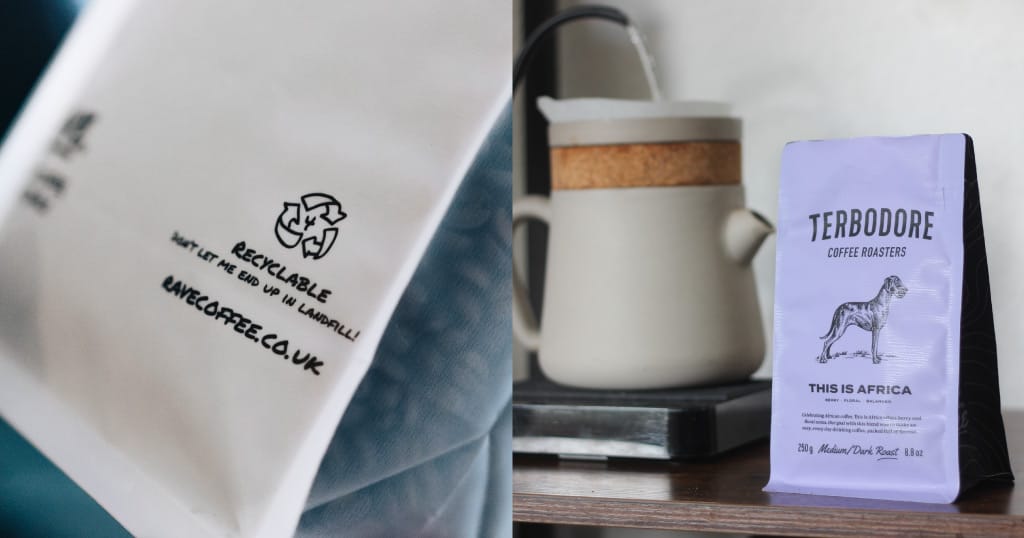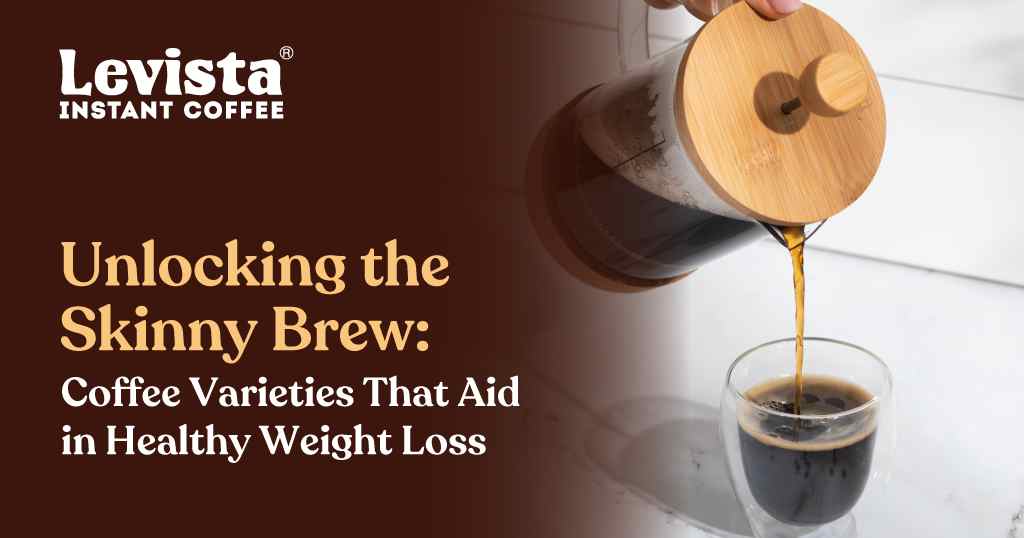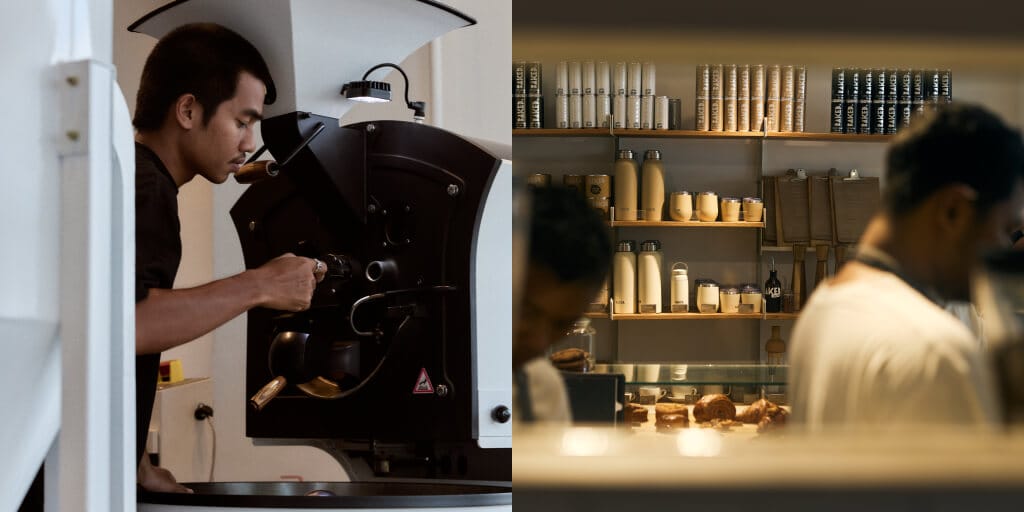To address the growing global waste production problem, many industries have adopted a circular economy model: a system based on the reuse and regeneration of products and materials for as long as possible.
Considering that only 7% of the world’s materials are cycled back into our economies – exacerbating environmental issues like pollution and biodiversity loss – a circular economy is essential for combating the impact of climate change.
The coffee industry is a significant contributor to rising global waste levels and has been taking steps to reduce its impact for some years now. Coffee packaging is often at the centre of these efforts, with many roasters offering recyclable, biodegradable, and compostable bags.
With 46% of consumers expecting brands to take the first step in creating sustainable change, according to research from Nielsen, roasters need to showcase their circular economy efforts – and packaging can be one of the most effective ways.
To learn more, I spoke to Mark Zhou, the founder of sustainable packaging brand MTPak Coffee.
You may also like our article on why the industry needs better packaging for specialty green coffee.

Sustainability & quality go hand-in-hand with coffee packaging
“Packaging is a silent salesman” is a common phrase in the marketing industry. Research shows that customers decide whether to purchase a product within the first five seconds of seeing it, meaning packaging design elements like colour, font, and logos have a huge first impression on consumers.
For artisanal products like specialty coffee, packaging is also key to protecting their integrity. To preserve the nuanced flavours, quality, and freshness of the product, roasters must invest in high-barrier green and roasted coffee bags that shield against oxygen, sunlight, and humidity. If not, roasters risk drops in cup scores and degradation of flavour.
The growing need for higher-quality packaging – especially in the wake of shipping delays that add weeks on to transit times – has led to the development of bags designed specifically for specialty coffee, fit for purpose to preserve volatile aromas and flavours.
At the same time, coffee consumers also demand sustainable packaging.
“For today’s consumers, sustainability is just as important as quality when it comes to coffee packaging,” says Mark Zhou, the founder of MTPak Coffee, which has been manufacturing recyclable, compostable, and biodegradable green and roasted coffee bags for ten years. “Bags need to preserve coffee flavour and freshness, but they also have to meet the ever-growing demand for sustainable solutions that minimise waste production.”
Packaging is central to sustainability efforts in coffee
In the wake of a growing climate crisis, waste reduction has become a huge priority for the coffee industry. According to a 2023 International Coffee Organisation Coffee Development report, the global coffee sector generates over 23 million tonnes of waste every year. Given its proximity to the end consumer, roasted coffee packaging is often at the forefront of this pressing issue.
With conscious consumerism on the rise, especially among Gen Z and millennial consumers who have the highest spending power in the coffee industry, sustainability is a prerequisite for coffee packaging. Recyclable and compostable bags have become the norm, and consumers expect brands to offer them.
“Simply put, if a roaster doesn’t offer high-quality, sustainable packaging that contributes to a circular economy, consumers will seek out other options,” Mark adds. “Roasters must ensure that their packaging meets the needs of conscious customers who value sustainability or risk losing out to other brands which offer this.”


Roasters need to prove sustainability claims – and packaging is key
The term “sustainability” is everywhere in the coffee industry. According to research from Mintel, almost half of new global coffee products launched in 2020 had some kind of ethical or environmental claim – close to double the number from 2012.
This shift in marketing and branding is a result of evolving consumer demand for more eco-conscious products. A recent study from the International Institute for Sustainable Development found that 43% of coffee consumers say they are influenced by “ethical, environmentally friendly, or socially responsible coffee options”, opening up opportunities for businesses to tap into a growing market.
But sustainability efforts are futile without the credentials to back them up, reducing them to greenwashing and marketing buzzwords. For roasters to have a genuine impact on people and the planet and build consumer trust, they need to showcase commitment and progress made to improve their environmental efforts.
“Offering recyclable packaging allows roasters to show their customers that they practice what they preach,” Mark tells me. “Roasters need to prove their sustainability claims, and packaging can be one of the most effective ways to do this – building brand loyalty and trust.”
Roasted coffee bags are the closest form of packaging to the end consumer, which means the responsibility falls on them to dispose of it properly. However, many consumers expect coffee brands to fulfil their fair share of sustainable commitments and take the first steps in contributing to a circular economy.
“We launched our new 100% recyclable 4Cycle packaging to address specific challenges in the coffee industry,” Mark says. “It’s often difficult to recycle different components of coffee bags, such as degassing valves and resealable strips, confusing consumers and causing issues at recycling facilities.
“Consumers may lack this awareness, and realistically, separating different packaging components is a burdensome task,” he adds. “To simplify the process, MTPak’s new LDPE 4Cycle packaging is fully recyclable, including zippers, degassing valves, card slots, transparent and semi-transparent windows, and eco-friendly inks.”


Why specialty coffee needs to adopt a circular economy model
Many are aware of the ramifications of the ongoing climate crisis. According to recent research, average global temperatures may already have increased by 1.5°C (2.7°F) above pre-industrial era levels – a critical threshold beyond which Earth is at risk of irreversible and extreme climate change.
The impact has been felt in the coffee industry for some time. Most recently, severe drought in Brazil and unprecedented rainfall in Vietnam, among other factors, have led to significant coffee supply shortages, causing market prices to reach historic highs.
Enacting substantial change requires a collaborative effort across the entire supply chain. Offering sustainable packaging solutions that contribute to a circular economy model is just one piece of the puzzle. Still, it plays a huge role in minimising waste and virgin material production, helping to lower the environmental impact of the coffee industry.
There is a growing consumer expectation for roasters and other coffee brands to initiate sustainable change, and packaging is one of the most simple yet effective means. Manufacturing recyclable coffee bags means more waste is diverted from landfills, lowering greenhouse gas emissions and reducing resource consumption.
MTPak Coffee’s new 4Cycle coffee bags, for instance, are fully certified by the Institute cyclos-HTP as a recyclable and reusable alternative to traditional plastic packaging. This means roasters can signpost their commitment to minimising their carbon footprint and appeal to consumer demand.
Moreover, MTPak Coffee offers low minimum order requirements and fully customisable services, allowing roasters of any size to best showcase their brand identity.


Sustainability is equally as important as quality for specialty coffee packaging, with many consumers expecting brands to take the lead in circular economy efforts. Offering recyclable, compostable, and biodegradable coffee bags is integral to this, allowing roasters to prove they practice what they preach.
By doing so, roasters can establish brand loyalty, reassuring customers that they are committed to reducing their environmental impact and investing in a more resilient coffee industry.
Enjoyed this? Then read our article on the evolution of digital printing in coffee packaging.
Photo credits: MTPak Coffee
Perfect Daily Grind
Please note: MTPak Coffee is a sponsor of Perfect Daily Grind.
Want to read more articles like this? Sign up for our newsletter!
Source link



